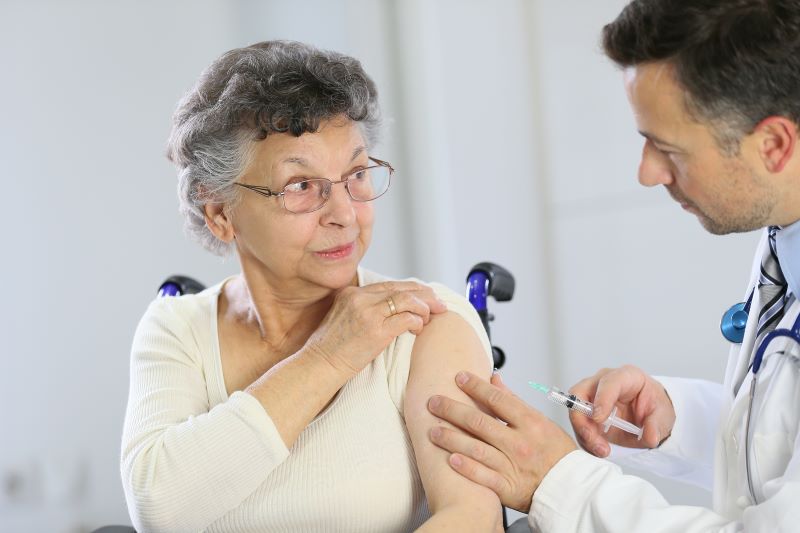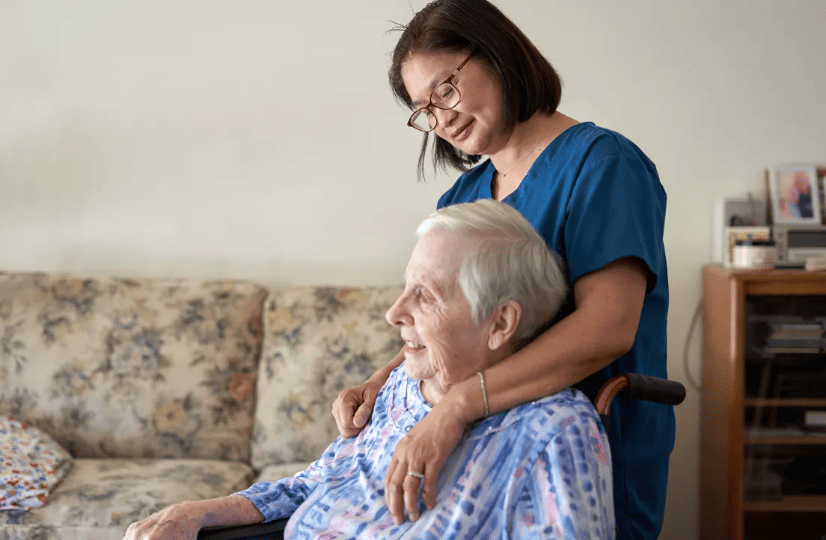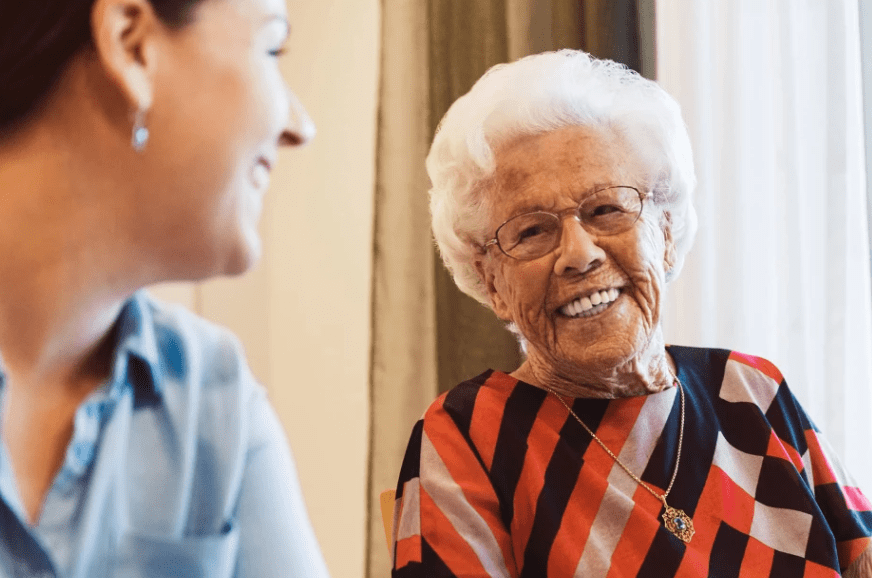- 5 Star Home Care COVID-19 Update PLEASE CLICK HERE
Common Vaccines Important For The Elderly

IN-HOME CARE CAN HELP SENIORS BEAT THE WINTER BLUES
December 10, 2020
Visits To The Doctor – An In-Home Caregiver Can Help
January 5, 2021 As we age, our bodies change. The strong immune defenses we had in our youth begin to fade, healing slows, and it becomes harder for us to recover from illness or injury. Staying healthy and vital during our elder years may require some changes to diet, exercise, and lifestyle—but without a strong immune system, we are left vulnerable to disease.
As we age, our bodies change. The strong immune defenses we had in our youth begin to fade, healing slows, and it becomes harder for us to recover from illness or injury. Staying healthy and vital during our elder years may require some changes to diet, exercise, and lifestyle—but without a strong immune system, we are left vulnerable to disease.
So, which immunizations are most important to senior adults?
Shingles
According to the Centers for Disease Control (CDC), nearly one in three Americans will develop shingles in their lifetime. Shingles are caused by the same virus responsible for chickenpox, the Varicella zoster virus. In adults with a past history of childhood chicken pox, the virus can re-emerge in adulthood, causing an itchy and painful blistering rash on the torso. The shingles vaccine is recommended for adults over 50 years of age and protects against the varicella virus and associated symptoms.
Pneumococcal Pneumonia
Two common vaccines are available to prevent pneumococcal pneumonia—a bacterial infection of the upper respiratory tract that can result in fever, chills, sweating, cough, chest tightness, and trouble breathing. If you’re 65 or older, your risk for bacterial pneumonia increases, even for those in otherwise good health. The pneumococcal polysaccharide vaccine (PPSV23) and pneumococcal conjugate vaccine (PCV13) are recommended for adults over 65. The PCV13 specifically targets those with reduced immunity or compromised immune systems. Ask your health care provider which vaccine is recommended for you.
Hepatitis B
Hepatitis B (hep B) is a contagious viral disease affecting the liver. Adults with hemophilia, or end-stage renal disease, or diabetes can experience lower resistance to hep B infection. Acute hep B can be particularly dangerous for these patients, and the chronic form of the disease can cause long-term liver damage and even death. The hep B vaccine is administered in a series of 3–4 injections over a 6-month period.
Influenza
The flu (influenza virus) is a respiratory illness typically resulting in fever, sweats, cough, sneezing, fatigue, and loss of appetite. For young, healthy people, the flu is often little more than a minor inconvenience, but for the elderly (especially those managing a chronic condition such as heart disease), its effects can be devastating. Seniors are more likely to become hospitalized as a result of influenza, when compared with their younger counterparts, and influenza remains among the top 10 causes of death among elderly adults. A higher-dose version of the influenza vaccine is available to older adults—ask your health care provider about this year’s vaccine.
COVID-19
As the novel coronavirus continues to ravage the nation, Pfizer, Moderna, and other pharmaceutical makers are escalating production and distribution of the COVID-19 vaccine. States are rolling out the vaccine release on different schedules, and in most regions health care workers are being given priority during the first wave of immunizations. Check with your healthcare provider (especially if you are over 65 or at high risk for respiratory illness) about availability of the vaccine to the public, estimated to begin by spring 2021.
At 5 Star Home Care we understand the challenges of living as an independent senior. That’s why our professional caregivers are trained to offer a range of support services in the comfort of each client’s home. Does an independent senior in your family need a little extra help getting to doctor’s appointments, shopping, cooking, or light housekeeping? 5 Star Home Care can help. Contact us today!




